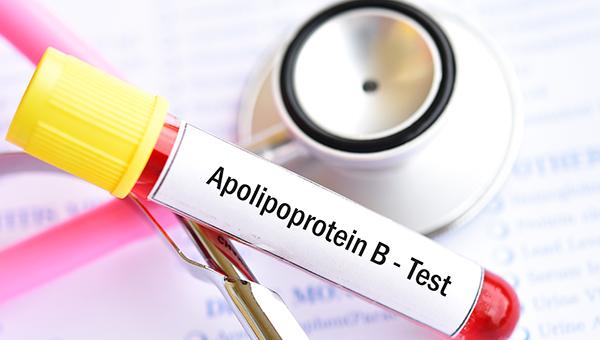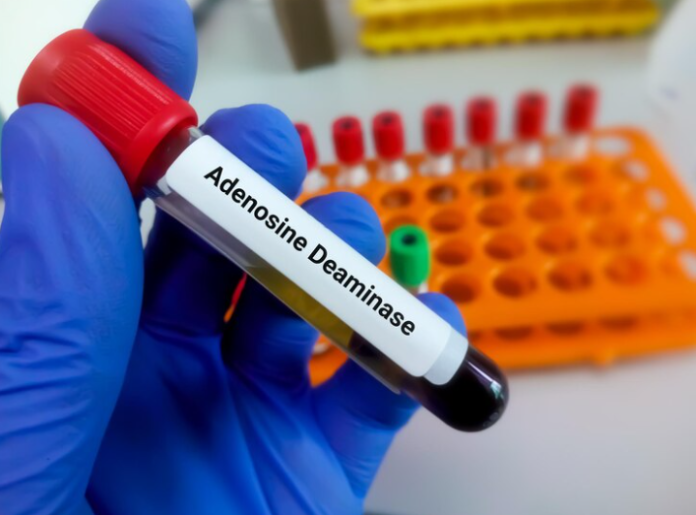APOLIPOPROTEIN – A1 (APO-A1)
What is Apolipoprotein A1 (APO-A1)?
Apolipoprotein A1 (APO-A1) is the primary protein associated with HDL cholesterol. Increased levels mostly indicate a reduced risk of cardiovascular diseases. Estimation on Apolipoprotein A1 is needed for monitoring the cardiac risk of subjects with a family history of CVD’s and also evaluating the effectiveness of lipid-lowering therapy.
IMMUNOTURBIDIMETRY
CARDIOLIPIN ANTIBODY (ACL) – IgA
What is Anti-cardiolipin antibodies?
Anti-cardiolipin antibodies are acquired auto-antibodies produced against cardiolipins and are found in the immunoglobulin classes- IgG, IgM and/or IgA. The presence of anti-cardiolipin antibodies in systemic lupus erythematosus can be related to the development of thrombosis. Anti-cardiolipin antibodies have been found in some cerebrovascular insufficiency, cerebral ischemia and in myocardial infarction. Moreover, the anticardiolipin...
ADENOSINE DEAMINASE
What is Adenosine deaminase?
Adenosine deaminase (ADA) is a protein produced by body cells and is associated with lymphocyte activation. This test measures the amount of adenosine deaminase in pleural fluid. Elevated ADA levels indicate tuberculosis infection of the pleurae. It also helps to determine infections in other fluids such as peritoneal fluid or cerebrospinal fluid (CSF).
ANTI PHOSPHOLIPID ANTIBODY (APL) – IGG
What is Antiphospholipid antibodies?
Antiphospholipid antibodies are autoantibodies produced against negatively charged components of the cell membranes called phospholipids. Antiphospholipid Syndrome (c) is an autoimmune disease with a variety of signs such as blood clots, low platelet count, miscarriage, stillbirth, and livedo reticularis or Antiphospholipid antibodies spasms as well as cardiac and neurological symptoms. It has a greater...
ANTI PHOSPHOLIPID ANTIBODY (APL) – IGM
What is Antiphospholipid Syndrome (APL)?
Antiphospholipid antibodies are autoantibodies that bind to negatively charged phospholipids. Antiphospholipid Syndrome (APS) is an autoimmune condition with a variety of clinical symptoms such as arterial and venous thrombosis, low platelet count, recurrent fetal loss, and livedo reticularis as well as cardiac, hematological, and neurological manifestations. It has a greater impact on young...
CERULOPLASMIN
What is Ceruloplasmin ?
Ceruloplasmin (CER) is the main transport protein for copper in the blood and plays a role in the body's iron metabolism. Measuring levels of ceruloplasmin aids in the diagnosis of copper metabolism disorders. Various factors such as diet, hormone concentrations, and other genetic disorders, may influence plasma concentrations. Physical exercise, pregnancy (late), bile duct...
GLUCOSE-6-PHOSPHATE DEHYDROGENASE
What is Glucose-6-Phosphate Dehydrogenase (G6PD) ?
Glucose-6-Phosphate Dehydrogenase (G6PD) enzyme is active in almost all types of cells and is involved in the processing of carbohydrates and energy production. It plays a critical role in red blood cells (RBCs) by protecting them from damage and premature destruction. G6PD deficiency is an inherited, sex-linked, metabolic disorder, which is characterized...
ANTI THYROGLOBULIN ANTIBODY (ATG)
What is Aglobulin ntithyroantibody ?
Thyroglobulin is a key protein in the thyroid gland that is essential for the synthesis of thyroxine (T4) and triiodothyronine (T3). Aglobulin ntithyroantibody test measures levels of antibodies produced against thyroglobulin. This test helps to identify autoimmune diseases involving the thyroid gland. The presence of thyroid autoantibodies causes disorders such as Hashimoto’s thyroiditis, Graves’ disease,...
CERULOPLASMIN
Ceruloplasmin (CER) is the main transport protein for copper in the blood and plays a role in the body's iron metabolism. Measuring levels of ceruloplasmin aids in the diagnosis of copper metabolism disorders. Various factors such as diet, hormone concentrations, and other genetic disorders, may influence plasma concentrations. Physical exercise, pregnancy (late), bile duct obstruction, primary biliary...
CHIKUNGUNYA-IGM
What is Chikungunya virus?
Chikungunya virus is transmitted to humans by infected Aedes mosquitoes. Infected patients typically have a sudden onset high fever, incapacitating joint pain, muscle pain, headache, exhaustion, and a maculopapular rash that lasts 3 to 10 days. Chikungunya IgM test measures levels of IgM antibody against the Chikungunya virus and helps in the diagnosis of...




